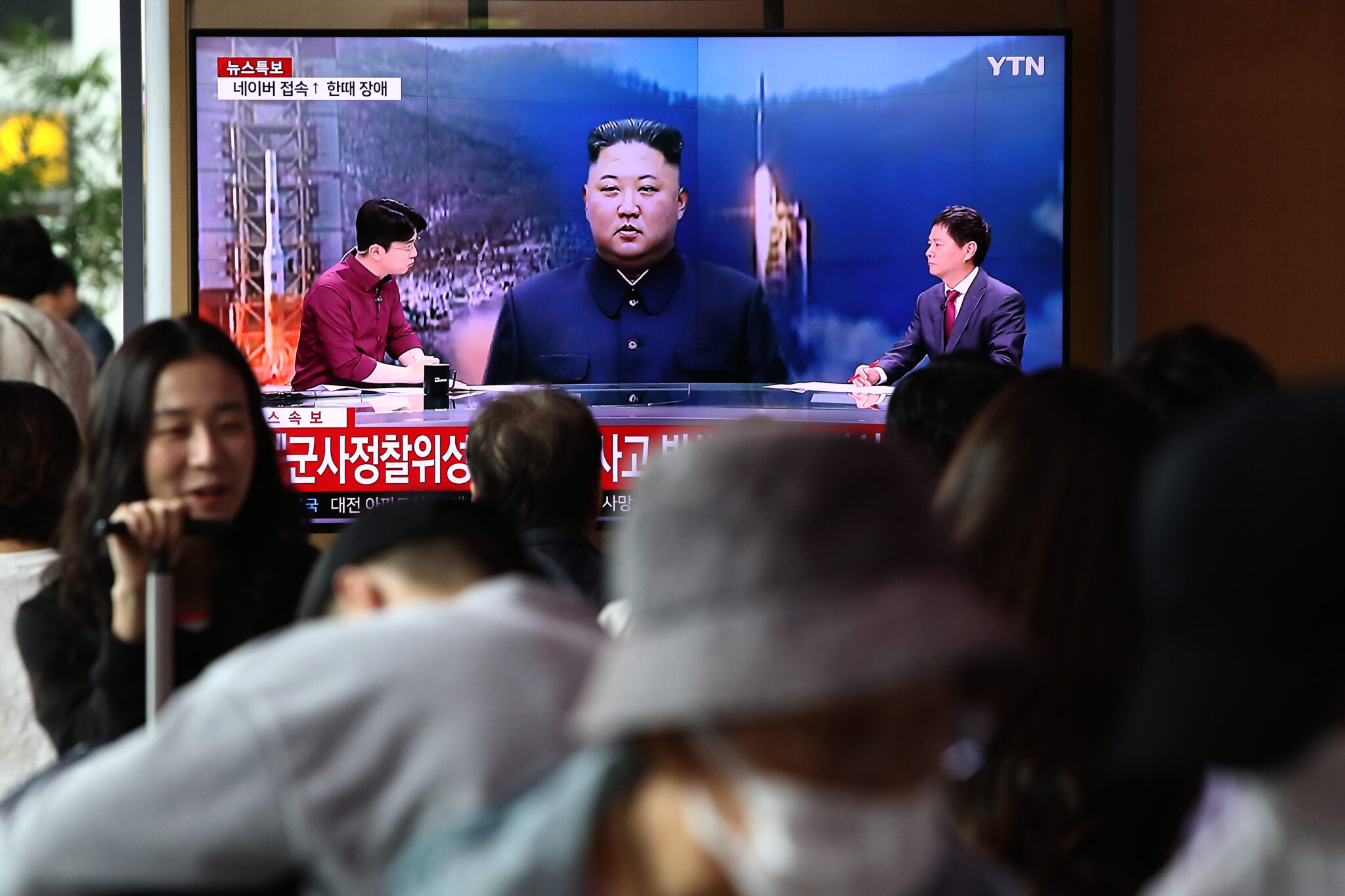[ad_1]
OPINION / EXPERT PERSPECTIVE — This is the twentieth anniversary of the Six Party Talks, established in 2003, to resolve the nuclear issue with North Korea. It’s an auspicious time for China, the host of the Talks, to put aside tension with the U.S. and encourage North Korea to return to negotiations. Ideally, the subject of North Korea will be discussed when President Joe Biden meets President Xi Jinping at the Asia-Pacific Economic Cooperation Summit in San Francisco later this month.
Russia’s February 2022 invasion of Ukraine – and the ongoing bloody war there – and Hamas’s terrorist attack on Israel on October 7 – and the ongoing war in Gaza – have diverted attention away from North Korea, although North Korea reportedly is providing Russia with artillery shells and rockets for its war in Ukraine and Hamas is reportedly using North Korean F-7 rocket-propelled grenades in its war with Israel.
Hamas, a proxy of Iran, receives training, funding, and support from Iran for its terrorist activities. And North Korea continues to have a close relationship with Iran, having provided Tehran with rockets, missiles, and weaponry over the years, in return for needed cash for their nuclear and missile programs.
North Korea’s Kim Jong Un has been transparent in his relatively recent embrace of Russia, with his public visit to Russia for meetings with Vladimir Putin and the recent visit of Russia’s Foreign Minister, Sergey Lavrov, to Pyongyang for meetings with Kim.
Cipher Brief Subscriber+Members enjoy unlimited access to Cipher Brief content, including analysis with experts, private virtual briefings with experts, the M-F Open Source Report and the weekly Dead Drop – an insider look at the latest gossip in the national security space. It pays to be a Subscriber+Member.
The warming of Russia-North Korea relations comes at a time when North Korea has already in 2023, launched three Intercontinental Ballistic Missiles (ICBM), the latest in July – a solid fuel missile with a range of 15,000 kilometers, capable of targeting the entire U.S. What followed was Kim Jong Un enshrining nuclear weapons in North Korea’s constitution and last year proclaiming a “first use” policy for nuclear weapons if there is an imminent or perceived to be an imminent threat to the North’s leadership or its command-and-control infrastructure.
Since the failed Hanoi Summit in 2019, North Korea has eschewed any talks with the U.S. or South Korea, while building more nuclear weapons and launching more sophisticated ballistic missiles, to include hypersonic and cruise missiles and submarine-launched ballistic missiles.
South Korea’s Defense Minister, Shin Won-sik, recently publicly expressed concern that North Korea could conduct a surprise attack on South Korea, like the surprise attack on Israel by Hamas. Shin said South Korea would have to enhance its surveillance of North Korea and suspend a 2018 inter-Korean military agreement – with buffer zones along sea and land boundaries and no-fly zones – in order to resume surveillance of an unpredictable North Korea.
Any intentional or accidental flare-up on the Korean Peninsula could escalate quickly, with the potential to destabilize the whole of Northeast Asia. And given the current alignment of North Korea with a revanchist Russia and Iran, a state sponsor of terrorism, the chances are that North Korea may now feel emboldened to challenge South Korea and, as they did in March 2010, with the sinking of the South Korean naval vessel Cheonan, killing 46 seamen, they may perpetrate another act of aggression against the South.
Subscriber+Members will receive invitations via email to a private virtual briefing with Ambassador Joe Detrani and former Under Secretary of Defense for Intelligence Dr. Michael Vickers on Tuesday, November 21. Not yet a Subscriber+Member? Let’s fix that.
In early 2003, when North Korea quit the Treaty on the Non-Proliferation of Nuclear Weapons (NPT) and started to produce plutonium at its Yongbyon nuclear reactor, for nuclear weapons, former Secretary of State Colin Powell reached out to his Chinese counterpart and persuaded China to convince North Korea to enter into Six-Party Talks negotiations hosted by China and including the U.S., South Korea, Japan, and Russia. China’s current Foreign Minister and Politburo member, Wang Yi, hosted the talks and on September 19, 2005, North Korea agreed to dismantle all nuclear weapons and facilities in return for security assurances, economic development assistance and a path to normal relations with the U.S., South Korea, and Japan.
Next week’s Asia-Pacific Economic Cooperation (APEC) summit in San Francisco from November 11 to 17, during which President Joe Biden will meet with Chinese President Xi Jinping, will be an opportune time for the two leaders to show the world that the U.S. and China can again cooperate on subjects as important as North Korea. Both want North Korea to denuclearize, completely and verifiably, in return for security assurances and other deliverables. Progress with China on the issue of North Korea, on the twentieth anniversary of the Six-Party Talks, should be high on the list of priorities for President Joe Biden.
This column by Cipher Brief Expert Ambassador Joe Detrani first appeared in The Washington Times
The Cipher Brief is committed to publishing a range of perspectives on national security issues submitted by deeply experienced national security professionals. Opinions expressed are those of the author and do not represent the views or opinions of The Cipher Brief.
Have a perspective to share based on your experience in the national security field? Send it to [email protected] for publication consideration.
Read more expert-driven national security insights, perspective and analysis in The Cipher Brief
[ad_2]
Source link

























